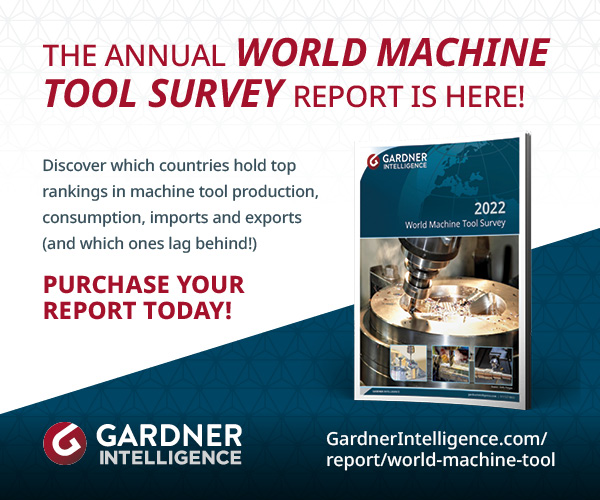The New Rules of Cutting Tools — Rule #2: Demand App Expertise
Sponsored ContentThe support of a knowledgeable tool supplier should be part of what you purchase with the tool.
Share
When cutting tool companies develop higher-performance cutting tools, generally they achieve this high performance by tailoring the tool and the tooling system to more specific machining applications. As cutting tool suppliers do this more frequently—developing tooling targeted to a larger number of specific applications—the range and variety of cutting tool options continues to grow. As a result, shops expecting to deliver competitive machining performance and productivity today cannot expect to rely exclusively on general-purpose cutting tools selected out of generic catalogs.
In fact, shops today cannot expect to rely solely on their own knowledge to find the right tools. There are too many choices. Instead, the shop needs to choose the right cutting tool suppliers. The expertise of any cutting tool company can no longer be considered a pleasant and occasionally useful addition. Today, the sophisticated machining facility must expect and demand useful cutting tool expertise as part of the purchase price of the tool.
That expertise may take various forms, including:
Materials Expertise
Andrew Hunter of Precision Dormer cites the various ways that a drill can be tailored for performance in specific machined materials. Where tools might have been specified as merely “coated” or “uncoated” in the past, there now exists a wide spectrum of different coating compositions for different material needs. Even greater attention goes to the substrate, he says, which is the most important area of cutting tool research and development today. Then there is also the geometry of the tool itself.
These and other factors are engineered to tailor tools not just to difficult materials, but also to those that are seemingly easy to work with. Whatever the material being machined, the tool supplier should be able to isolate the right tool for better performance.
Take aluminum, for example. In a tool engineered for aluminum, the tungsten content is high. This contributes to a smooth finish, protecting against built-up edge. In addition, the geometry should stretch and break the chip to counteract aluminum’s tendency to form a soft and sticky chip.
Considerations such as these ensure that the drill maximizes performance in any particular metal—or non-metal—that is being machined.
Workpiece Expertise
Another geometry that is also significant to tool selection is the geometry of the part. A complex workpiece with a range of poorly accessible features may leave the shop investing heavily in non-standard tooling to overcome challenging clearances, as well as taking inefficient cuts to deal with the low stiffness and poor support that this awkward tooling may provide.
An expert cutting tool supplier should have expertise not just in materials but in parts such as these—offering systems that are tailored to more difficult workpiece types.
An example of a difficult workpiece type is turbine discs and casings. These complex turned parts, often made of hard-to-machine alloys, generally feature profiled pockets with various difficult clearance requirements. To respond to the particular difficulties of these parts, Sandvik Coromant developed the modular SL70/40 tooling—a configurable, quick-change system that delivers stable heavy machining to almost any turbine disc or casing feature. Different configurations of just a few modular building blocks give this tooling the right support at the right clearance for various turbine features, while the HP technology incorporated into this tooling assists with challenging materials by delivering high pressure coolant right above the cutting edge.
End-Market Expertise
Different industries also have different machining requirements, and the cutting tool supplier ought to be able to help the shop meet them. Increasingly, certain materials themselves are industry-specific. A chief example is composites. Precision Dormer is making considerable investment in the development of tools and application knowledge for the drilling of aerospace-industry composites. (See Rule #3 at www.mmsonline.com/newrules for more information.)
The challenges of certain machined parts are also relevant to certain industries. Sandvik Coromant project manager for aerospace development Chris Mills points to the example of surface integrity. This is a vital consideration that few shops outside of aerospace have to face in quite the same way. In aerospace, however, machining forces and temperatures can produce microhardness changes, plastic deformation and residual stresses that could make an otherwise accurate part unacceptable.
The company has studied this phenomenon, and in particular has analyzed the influence of the tool’s trailing edge wear on the quality of the machined surface. Both cutting tools and cutting techniques have been developed for controlling this edge wear in a way that allows aircraft parts suppliers to meet even the most demanding surface integrity requirements.
Customization Consultation
Still, a standard tool won’t always do the job. Having the cutting tool supplier involved in the application can also allow the supplier to identify those cases where a custom tool created just for the application truly can deliver the most value. If that cutting tool supplier already has considerable knowledge related to this shop’s particular challenge, then the customization may only need to be a slight change. It may take the form of just a specific angle added to a standard tool that is already very close to what the shop needs.
.png;maxWidth=970;quality=90)
.png)


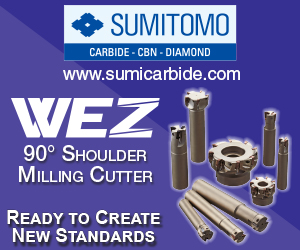
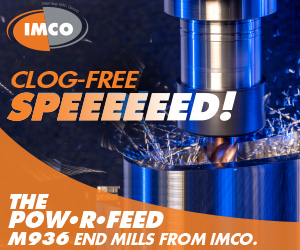

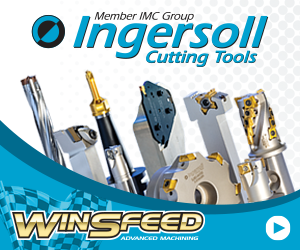





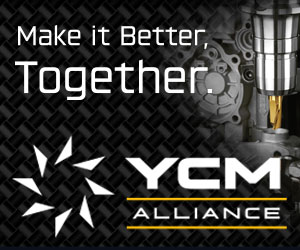


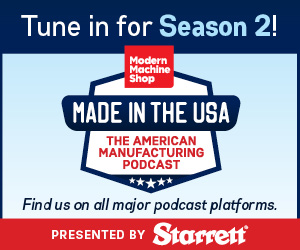


.jpg)
